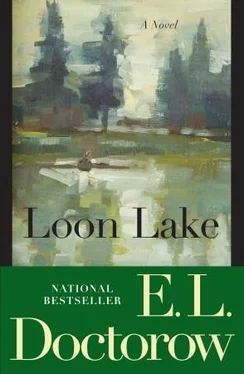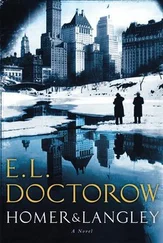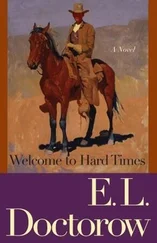“She was a student when I met her. She was then, and remained, the most handsome woman I had ever seen. I secured a divorce to marry Lucinda. And in the years as they went by, no matter what passed between us, whenever she saw fit to spend time with me I was pleased to see her, I mean that no matter what the state of our affections I was always pleased when she came into a room. If she came into a room I had to look at her. I could not not look at her.
“I respect character in a man but I revere it in a woman. I am done in when I find it in a woman. That little doxie had it in a cheap sort of way. But in Lucinda it tested like the best ore, through and through, in the bones and in the beam of the eye.
“Long ago she lost the pleasure of — what? — the engagement. And I was able to appreciate her character in the depth of her withdrawal from me. And then how I wished she had less of it! Less pride, less distaste for — surprises. Less neatness of soul. I told her she liked the sky because it was clean. She liked to go up in rain. I never flew with her because I sensed that it was her realm. But everyone told me what a wonderful pilot she was. How cool. How capable. And then she began to pull down the prizes and I knew it was so.
“I was very proud of her. I bought her whatever she needed. She may have fallen in love with a fellow, some mail-service pilot, one of those adventurer types, and I was going to have it looked into. But when I thought about it I knew Lucinda would never permit herself an affair. It was not something to which she would give rein. And gradually she ceased to mention him. If it were possible for Lucinda to exist without a body she would have chosen to. Her body was of no interest to her. She did not like it … handled. She was a very orderly woman, Lucinda. If you look upstairs in her apartment you will see the order of her mind. She did everything with precision, and so was she affectionate with precision.
“She flew planes but her tastes were very delicate and refined. She knew art, she knew music. She had small bones as befitting a fine mugwump family. They none of them liked me. I took great relish in that. It was one of those things. I have no taste of my own but I could recognize the quality of hers. She could look at something for a long time, a painting, a piece of porcelain. Then I knew it was fine. I envied her vulnerability — that she could be transfixed by something that was beautiful. She became pregnant just once and immediately took measures to have it rescinded. We had no children. I have one child by my first marriage but he is an incompetent, I mean legally, a macrocephalic, he has water in the head, and he lives in a home in Sweden. They take too good care of him. By all rights he should have been dead years ago.
“Lucinda went once to see him. Thereafter she sent him thoughtfully chosen gifts, toys, tins of cookies, picture books appropriate to his mental age. She always sent him things. She liked helpless beings. I don’t mean that the way it sounds. I mean she had a heart for people. It was she who saved Penfield a jail sentence. Penfield was from the working class and he decided to come here in the late twenties to assassinate me. You knew that of course. Well, the fellow was pathetic but she kept him on as a sort of a cause in personal rehabilitation. A sort of one-woman Salvation Army, except without the prayer. Lucinda was not religious except perhaps in some vague pantheistic way. She decided the poor man was a poet. I got to like him myself. He read aloud very well, he probably should have been an actor. He read Wordsworth and Keats, all that kind of thing. He was a sort of house pet she kept on and I indulged her. But then of course I did something I shouldn’t have. I took Penfield’s own verses to the president of the New York Public Library and asked him his opinion. In turn he called on a professor who was an expert in the field of literature. Oh my. And I showed Lucinda this fellow’s letter. She perceived, accurately, that the opinion didn’t matter so much as my malice in having asked for it. She threw the letter in the fire. She was a wonderful woman. She was not a prey to fashion, didn’t give a damn for it. She always looked smart by looking herself. She always wore her hair the same way, cut short and brushed back from her temples. I thought it was most seemly. She had a thin, fit body. Thin waist. Ribs showed. She had good hands, small and squarish, nails trim, cut close. She would not paint her nails or wear make-up. I liked her mouth, a generous mouth. Sweet smile. A light came into her eyes when she smiled. She had almost no bosom. Just a slight rise there with good thick nipples. She told me once if I liked her body I must really like boys.”
He paused. “You’ve come here to kill me too, I suppose.”
“What?”
“But you don’t have the guts for it — anymore than he.”
“What?”
“See? I’m not even carrying my gun.”
He pushed his chair back from the table and held out his arms.
The room empties. They have gone to make the call. I walk back and forth shaking a fist in the air. The fuckers! By my wits I have done this thing and the stupid sons of bitches have gone for it. But why not? They will hear him laugh, they’ll hear him say, Yes, let him go . My heart fills with a passionate conviction. He and I are complicitors. We’re both against them. As if, having made this up, I cannot make it work unless I believe it myself.
And I am released. And I strut out of that room bone-cracked, skin-stitched and betrayed and I glare at them all as I lead her by the arm out the door. I take my time. I think the illusion will endure only if I do not break and run. I sleep in Sandy James’ parlor. I sleep eighteen hours. I take her money, buy a truck. I hire two men to load it. In the rear-view mirror I see only a black industrial cloud where Jacktown was. I press the accelerator. Cars turn on their lights, the red lights of moving cars ahead of me. The furniture shifts and bangs against the tailgate. The heavy furniture rises in the air on the bumps. I am in transit on the road, the child bride beside me, bracing herself with her knee against the dashboard and holding her baby tightly. I open the window for the cold air. I want the wind to blow these feelings out of my eyes, blow them away, leave me without memory or love, leave me to myself.
“If you thought I would want to kill you,” I said, “why did you tell them to let me go?”
“What?”
“When the police called from Jacksontown,” I said to him. “With that message.” I was smiling like a fatuous idiot.
“What message? I don’t know what you’re talking about. From whom?”
I choked on the answer. Bennett got up and stood at the parapet. He stood looking over the lake with his hands in his pockets.
That night we steal upon a station of the Tokaido and purchase disguises. We are a country lord and his serving boy. She wears bloused trousers. We travel in this humble manner because my mission is clandestine. Soldiers of the daimyo eye us warily. We book rooms in a modest inn where, to avoid suspicion, I call for a woman. She is a tired fat artiste who responds to the humor of the situation. The two of us climb all over her, I with ordinary lasciviousness, my young ward with the affection of a child for her mother. Of course the old whore is terribly moved. She reaches into the child’s pantaloons, and my hand, like a band of steel, clamps around her wrist. If she discovers my serving boy is a girl, all is lost. Even so the situation is difficult. I use all the sexual arts of which I am capable to divert the old bag. But in the midst of passion I intuit that the more undone she becomes, the more shrewd. It is actually interesting. At the moment of her release she is totally withdrawn and quietly aware that we are not what we appear to be. But her tongue is extended. I grab the tongue and impale it to the polished floor with an awl. I shout and stamp about and raise an uproar. The innkeeper comes to the door. Other travelers come running. I berate the innkeeper for the poor quality of his house. He is abject. The woman moans, rump up, head on the floor, eyes glazed like a pig to be served. I put my foot on her back and behead her. The innkeeper begs my pardon.
Читать дальше











